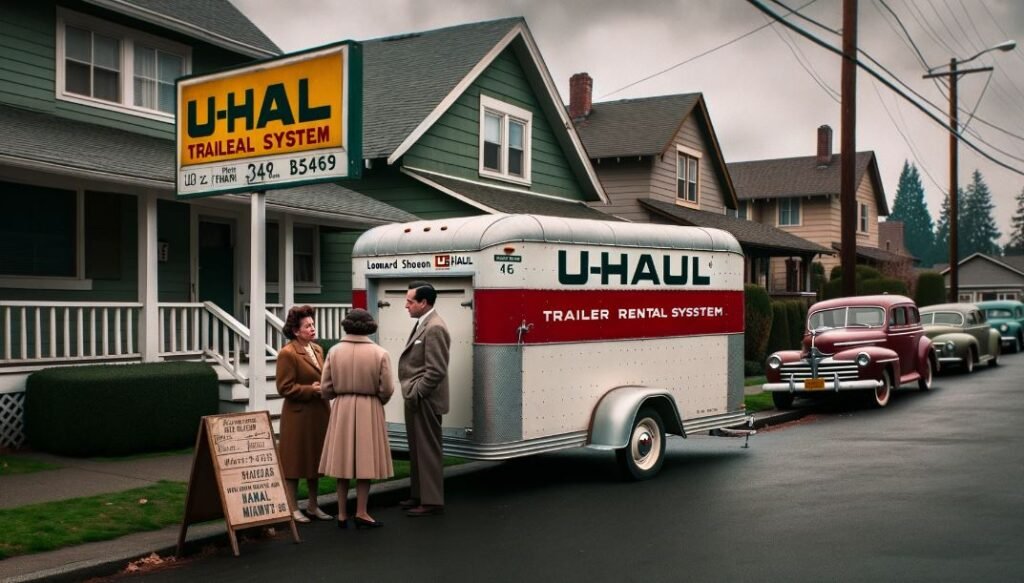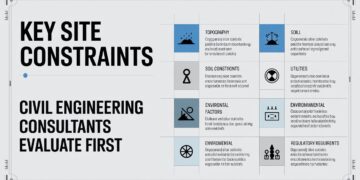From Humble Beginnings to Nationwide Impact
In 1945, Leonard Shoen and his wife, Anna Mary Carty Shoen, in the quaint town of Ridgefield, Washington, had a simple yet groundbreaking vision. With just $5,000, they initiated a revolutionary change in the moving industry – the U-Haul Trailer Rental System. Born out of an insightful trip from Los Angeles to Portland, Oregon, this system aimed to cater to do-it-yourself movers who sought reliable equipment for one-way moves.
U-Haul’s operation started from the confines of the Shoens’ garage. However, with a clever approach to franchising with gas stations, the company soon expanded its wings, reaching out to numerous locations across the US.
Adapting to a Changing Landscape
By 1959, U-Haul had added another feather to its cap by introducing rental trucks tailored for household shifting, proving its adaptability and vision to expand beyond just trailer rentals. But this upward trajectory was only sometimes smooth. The 1980s saw the company navigating through internal disputes, notably a significant takeover by Leonard Shoen’s sons in 1986. This period tested the company’s resilience as it grappled with legal challenges that momentarily shadowed its reputation.
Beyond Moving: Diversification and Growth
U-Haul has continuously showcased its ability to evolve and diversify. Today, U-Haul’s portfolio isn’t restricted to truck and trailer rentals. They have expanded their horizons to offer self-storage units, hitch installations, moving supplies, and propane refueling. This versatility is complemented by their unmistakable branding, visible in the distinct livery splashed across their rental vehicles.
Financial Milestones and Modern Market Adaptability
The present-day U-Haul is a beacon of financial strength and adaptability. Under the U-Haul Holding Company umbrella, it stands tall as a publicly traded entity, simultaneously operating other successful ventures like Amerco Real Estate and Oxford Life Insurance Company. With a 40% share through their holding company, the Shoen family remains integral to U-Haul’s core.
Recent times have witnessed U-Haul demonstrating acute market understanding. The U-Haul Growth Index, for instance, highlighted the company’s substantial growth in booming states like Texas and Florida. Their fiscal strategies are also noteworthy. With a sharp increase in actual estate-related expenditures in fiscal 2023, U-Haul reported an impressive net earning of $256.8 million in the first quarter of fiscal 2024.

Upholding Integrity: Legalities and Stakeholder Engagement
Being in the limelight also meant facing challenges head-on. A notable instance is the 2012 trademark case with PODS. The lawsuit concluded with U-Haul being mandated to pay a hefty $62 million damage award for the accidental misuse of the term “pods.” Yet, despite such hurdles, U-Haul’s commitment to stakeholder engagement and transparency shines through, as evident in their consistent sharing of growth indices and financial results.
Concluding Thoughts
U-Haul’s story isn’t just about moving belongings; it’s about moving ahead with time, adapting to change, and standing tall amidst challenges. From a small garage in Washington to over 21,000 locations across North America, U-Haul’s journey is a testament to perseverance, vision, and relentless dedication to serving its customers.
Also, Read Mastering the Markets: Gold Trading Insights and Oil Price Predictions.
FAQs
What is U-Haul’s origin story?
U-Haul was founded in 1945 by Leonard Shoen and his wife, Anna Mary Carty Shoen, in Ridgefield, Washington. It began as a solution for do-it-yourself movers seeking reliable one-way moving equipment, initiating with the U-Haul Trailer Rental System.

How did U-Haul expand its services beyond trailer rentals?
In 1959, U-Haul introduced rental trucks tailored for household moving, marking its diversification beyond just trailer rentals. Over the years, U-Haul broadened its offerings to include self-storage units, moving supplies, propane refueling, hitch installations, and more.
Did U-Haul face any internal challenges?
Yes, during the 1980s, the company underwent internal disputes, notably a significant takeover by Leonard Shoen’s sons in 1986, followed by legal challenges that affected the company’s reputation for a while.
How has U-Haul’s service portfolio evolved?
U-Haul has continually expanded its services. Besides truck and trailer rentals, they now offer self-storage facilities, moving supplies, moving assistance, propane refueling, and hitch and trailer wiring installations, among other services.
Who currently owns U-Haul?
U-Haul is a publicly traded entity under the U-Haul Holding Company. The Shoen family still retains a significant share, approximately 40%, through their holding company.
Has U-Haul faced any significant legal battles?
One of the significant legal confrontations was in 2012 when PODS filed a trademark infringement case against U-Haul. U-Haul was found to have improperly used the term “pods” for its U-Box product, resulting in a $62 million damage award in favor of PODS.
How does U-Haul engage with its stakeholders?
U-Haul regularly shares growth indices and financial results, showcasing its commitment to transparency and stakeholder engagement.

How has U-Haul adapted to recent market trends?
U-Haul has exhibited keen market adaptability. For example, the U-Haul Growth Index highlighted substantial growth in states like Texas and Florida, indicating where one-way U-Haul truck customers are moving.
What are some of U-Haul’s financial milestones?
In fiscal 2023, U-Haul heavily invested in real estate, indicating their growth strategy. Moreover, they reported net earnings of $256.8 million for the first quarter of fiscal 2024.
What makes U-Haul a trusted brand in the moving industry?
From its humble beginnings in 1945, U-Haul has consistently focused on serving its customers, diversifying its offerings, and adapting to market changes. Their commitment to transparency, stakeholder engagement, and reliable services has solidified their trustworthiness in the industry.

















